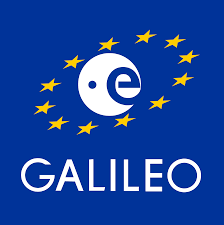15 February 2017 – I am involved with a project at the European Space Agency and that has involved me in a number of side presentations and workshop. One recent event focused on why Europe wants its own versions of the US’s space-based Global Positioning System. Given that the full might of GPS is available to one and all, such variants have often been criticized as costly vanity projects. And although the US still has the ability to degrade the accuracy of the GPS signal offered to civilians, it has not done so for 17 years.
But with the capricious Donald Trump in the White House and doubts about international cooperation, Europe feels justified in having pursued its own space capabilities, including its positioning system, Galileo.
The signals that rain down from such systems do more than tell our satnavs where we are. They provide location information to emergency services and logistics and transport industries, and to emerging sectors like driverless cars and precision farming. They also sync phone networks, bank transactions and power grids.
Norbert Barthle, Germany’s state secretary for transport and digital infrastructure, said that isolationist messages from the Trump administration underscore Europe’s need for comprehensive space capabilities.
But such self-determination is not easy. In recent weeks, Galileo (which went live this past December) and India’s equivalent, IRNSS, both saw mysterious, in-orbit failures of their critical atomic clocks. It is the differences in travel time of atomic clock signals that are used to compute a position on Earth. For backup purposes, each Galileo satellite has four clocks, while IRNSS spacecraft have three. So far, nine clocks have failed across five of the 18 Galileo craft so far in orbit, while all three failed on one IRNSS spacecraft.
Both systems are still running, but continued clock failures could ultimately mean a greater dependence on GPS, or perhaps the only other global system, Russia’s GLONASS network.
NOTE: the European Space Agency isn’t officially commenting on its probe into the clock failures as Galileo is “critical infrastructure”.
Perhaps it’s even more critical now. Satnavs might tell us where we are – but the rise of isolationist politics means we no longer know exactly where we stand when it comes to cooperation. Europe’s plan B looks wise.
